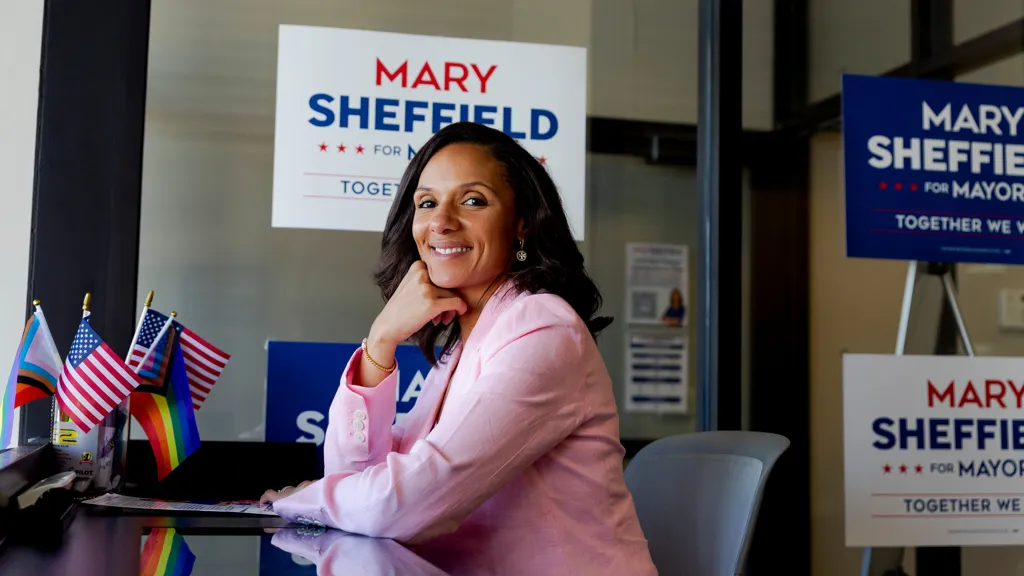Mary Sheffield and Solomon Kinloch Jr. will face off in a November election. Mike Duggan, Detroit's mayor for a dozen years, is not seeking re-election.
Twelve years have passed since Mike Duggan, a former hospital executive, was elected mayor of Detroit in an improbable write-in campaign.
Mr. Duggan inherited a city facing a pileup of crises. Detroit was struggling to perform basic city services, losing residents by the thousands and was in the throes of the country's largest municipal bankruptcy.
Three terms later, as Mr. Duggan runs for governor of Michigan instead of another term at City Hall, he will turn over a fundamentally different Detroit to his successor.
On Tuesday, with nine candidates on the ballot, Detroit voters advanced Mary Sheffield, the City Council president, and Solomon Kinloch Jr., the pastor of a large church, to the November general election, The Associated Press said. The race is officially nonpartisan, but both candidates are Democrats.
During Mr. Duggan's tenure, the city's finances stabilized, the downtown area was transformed and, for the first time in decades, the Census Bureau estimated slight upticks in Detroit's population. Yet many residents say they are still waiting to see significant improvements in their neighborhoods.
Ms. Sheffield, who would be the first woman to lead Detroit, has spent 12 years on Detroit's City Council and consistently led in pre-election polling. On the campaign trail, she emphasized her work alongside Mr. Duggan while also calling for increased attention on struggling residential areas.
Ms. Sheffield, an ordained minister who is the daughter of a prominent Detroit pastor, said she would seek to build on what Mr. Duggan had accomplished, rather than shift sharply from his policies.
"I think the majority of Detroiters think that he's done a great job," Ms. Sheffield said.
While Ms. Sheffield had been widely expected to advance to the general election, the race for the other spot in the head-to-head race had been far less clear. In addition to Mr. Kinloch, the contenders included James Craig, a former police chief; Fred Durhal III, a city councilman; Saunteel Jenkins, a former City Council president; and Todd Perkins, a lawyer. Mr. Craig is a Republican, and the other leading candidates are Democrats.
Mr. Kinloch leads Triumph Church, which claims tens of thousands of members across several campuses in Michigan. He has called for greater attention on neighborhood development and pledged to help residents who feel left behind amid rapid redevelopment downtown. During the Covid-19 pandemic, he organized a campaign to deliver groceries and other supplies to families.
Late in the campaign, local news outlets reported that Mr. Kinloch had pleaded guilty more than 30 years ago to assaulting his wife at the time. Mr. Kinloch, who was sentenced to probation, told The Detroit Free Press that "I accepted responsibility and I learned from the mistakes."
Mr. Duggan, who is Detroit's first white mayor in decades, won re-election by overwhelming margins in each of the last two cycles. He holds high approval ratings in Detroit, where around 75 percent of residents are Black. He did not endorse a candidate in the first round of voting.
A longtime Democrat, Mr. Duggan recently left the party and decided to run for governor as an independent. He said he broadly agreed with the mayoral candidates' focus on developing neighborhoods, though he noted that property values in many parts of Detroit had doubled or tripled during his tenure.
"The city lost population for 60 years straight," Mr. Duggan said. "We weren't going to fix it in 12, but we got it going a long way in the right direction."
